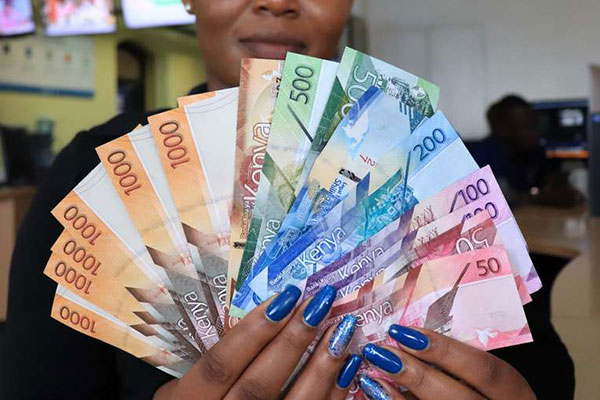

The Central Bank of Kenya (CBK) has issued emergency measures to facilitate greater use of mobile money services in a bid to reduce the risk of spreading the novel coronavirus, or COVID-19, through exchange of banknotes.
Kenya has reported three confirmed COVI19 cases while some 22 cases are under isolation having been in contact with infected people.
In a statement issued Monday afternoon, CBK announced a set of actions among which there will be no charge for mobile money transactions of up to Ksh1000 (equivalent to about Rwf9100).
Other measures included increasing transaction limit for mobile money to Ksh50,000, while the daily limit for transactions increased to Ksh300,000 (or some Rwf2,734,500).
The monthly total limit for mobile money transactions has been eliminated in the new development and the current tariff for transactions for Ksh70,000, or about Rwf637,400, will apply for even bigger transactions of up to Ksh150,000 (about Rwf1,365,900).
CBK said that while the immediate objective of the move is to reduce the risk of transmission of COVI19 by handling bank notes, it will also reduce the use of cash in the economy over the medium term.
Authorities announced that emergency measures will apply from midnight March 16, 2020 and will remain in place until June 30, 2020.
In Rwanda, several commercial banks are also pushing for greater adoption of cashless payments to help check the spread of COVID-19.
Earlier Monday, Tanzania became the latest East African Community (EAC) nation to confirm a COVID-19 case after Kenya and Rwanda (five cases).


